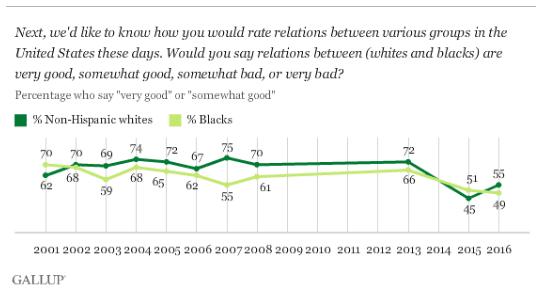Each February, Americans honor both people and significant events in African-American history during Black History Month, also known as African-American History Month.
Among the myriad reasons Black History Month is important is the underrepresentation of people of color in standard history classes. For instance, the recently released biographical drama Hidden Figures depicts the story of three female African-American mathematicians who worked at NASA and were integral in getting American astronauts into space. Their names are nowhere near as widely discussed as John Glenn or Neil Armstrong, though their contributions to the space program were arguably as important.
Because underrepresentation of African Americans in traditionally-taught history has long been a problem, Black History Week was created in 1926. It was officially expanded in 1976 to include the entire month of February. In addition to the United States, Canada and the United Kingdom also celebrate Black History Month.
Last year, this HeinOnline blog post discussed key figures in African-American legal history. Since that post was published, the topic of race relations continues to permeate headlines and American culture generally. Consider these Gallup poll numbers:
2016
- 53% of adults believe relations between whites and blacks are very good or somewhat good.
- 46% of adults believe relations between whites and blacks are very bad or somewhat bad.
- 55% of white adults believe relations between whites and blacks are very good or somewhat good.
- 44% of white adults believe relations between whites and blacks are very bad or somewhat bad.
- 49% of black adults believe relations between whites and blacks are very good or somewhat good.
- 50% of black adults believe relations between whites and blacks are very bad or somewhat bad.
These numbers show that, while Americans are divided fairly evenly on this issue, more Black Americans believe race relations are very bad or somewhat bad than do their white counterparts. It’s also important to note that the percentage of both white and black Americans who believe relations between whites and blacks to be very bad was higher in 2015 and 2016 compared with 2013. This chart also shows a decrease in the percentage of both whites and blacks who say relations are very good or somewhat good during this same time period:

These differences may not be significant enough to indicate a long-term downward trend, so future polls will be important in determining this information.
A search in HeinOnline for “race relations” AND “United States” AND “blacks and whites” produces more than 2,200 results from the Law Journal Library and nearly 800 results from U.S. Congressional Documents. Sort the journal results by Volume Date (Newest First) to find material from 2016 back to 1909, which indicates that this topic has been the subject of legal scholarship for more than 100 years.

Slavery in America and the World: History, Culture & Law
In October of 2016, HeinOnline released a new database called Slavery in America and the World: History, Culture & Law. This collection brings together, for the first time, all essential legal materials on slavery in the United States and the English-speaking world. This includes every statute passed by every colony and state on slavery, every federal statute dealing with slavery, and all reported state and federal cases on slavery. Case coverage extends into the 20th century because long after slavery was ended, there were still court cases based on issues emanating from slavery.
This database was made available at no charge for anyone with an interest in the topic. There were many reasons for the decision to make this a free database, among those being the current racial climate in the United States and the desire to promote educational tools which may potentially help facilitate an open and positive dialogue on this important and sensitive subject.
Books and pamphlets contained within the database have been indexed and categorized for convenient browsing and searching. For example, a search for the phrase “fugitive slave laws” produces more than 200 results. The facets in the left viewing pane enable researchers to refine results by document type, topic, position on slavery, jurisdiction, and more:

Note that terms matching the search phrase are highlighted in yellow within the search result text snippets. Options to print, download, email, or save documents in a MyHein personal research account are available on the right side of each result.
If you have not yet registered for free access to Slavery in America and the World: History, Culture & Law, you may do so here. To learn more about this resource and read the editor-in-chief’s introduction, visit https://home.heinonline.org/content/slavery-in-america-and-the-world/.
Join HeinOnline in the celebration of Black History Month by researching notable figures, historical events, and current events pertaining to race relations and the key role that African-Americans have played in shaping our society’s culture. If you’d like to do more, make a donation to the NAACP, the UNCF, or another organization which supports the societal advancement of people of color.
For help with HeinOnline, contact us at (800) 277-6995, email us, or chat with us!



